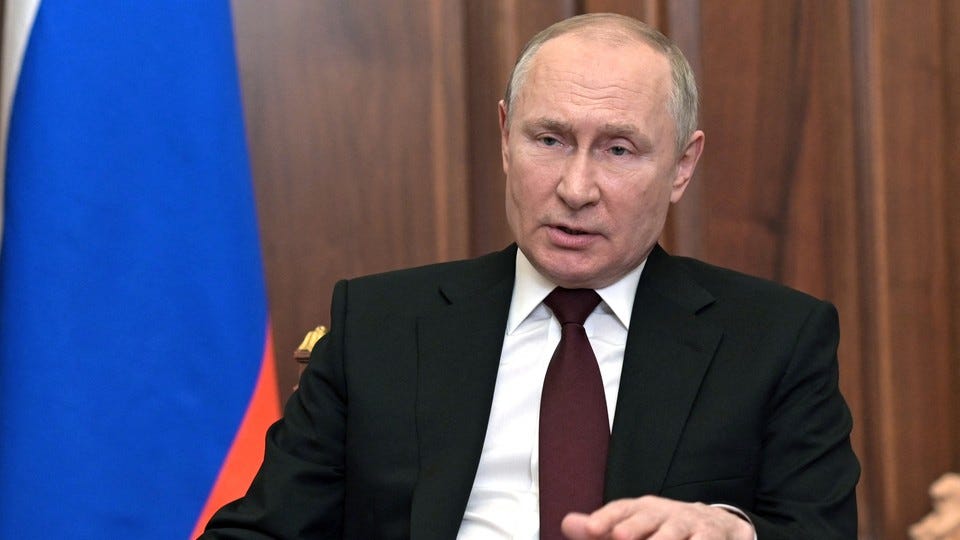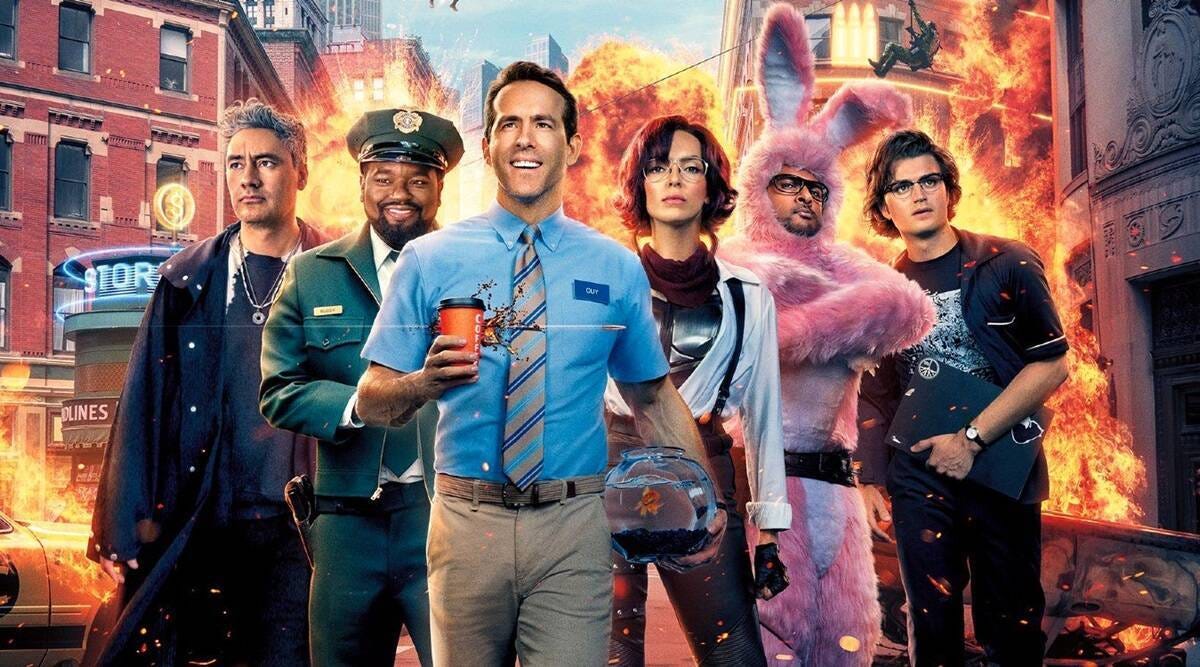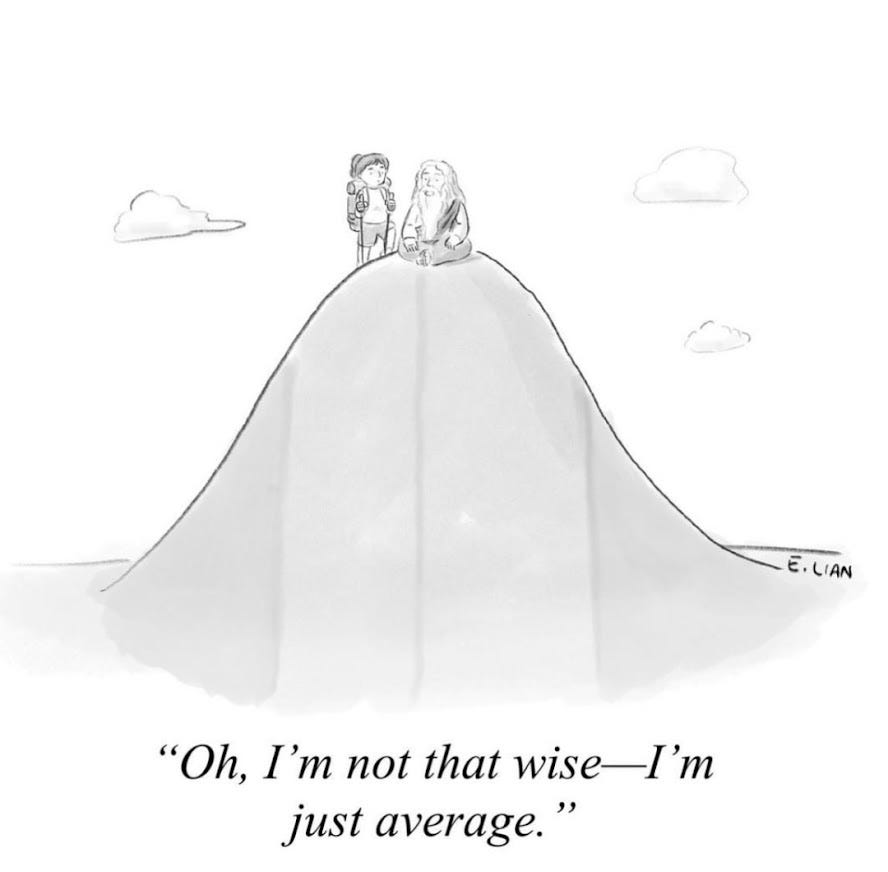📈What's the Plan?
Sh*t got real this week in the Ukraine-Russia conflict.
As we write this, bombs are falling on Kyiv, the Ukrainian capitol of nearly 3 million people.
Geopolitics is a tough game. It’s like playing heads-up poker, Russian roulette, and picking a lock blindfolded all at once. So, we’re not going to attempt to explain it. All we know is it’s not good, we hope everyone on the ground stays safe, and that we can find a diplomatic solution as quickly as humanly possible.
Since geopolitics are hard and we aren’t experts, let's focus on what this means for the markets. As we mentioned before, markets had fallen below their 200 day moving average increasing volatility. Unsurprisingly Russia dropping bombs did little to settle this volatility.
Somewhat surprisingly, markets actually closed up Thursday after four successive trading days in the red.
Despite this rally the market is -11% from the highs achieved on January 4th. You may have seen some headlines that used the word ‘correction’ to describe the spate of negative performance. A correction just means that the market is down 10% or more but less than 20% from it’s previous highs.
Is a correction a prelude to a bear market or outright recession? Not usually. In fact, it’s called a ‘correction’ because the market often recovers from the string of losses and ‘corrects’ back to previous levels.
Source: Schwab
And, when corrections do turn into full-on bear markets, it’s rare for bear markets to last very long. Since 1945, the average bear market (contraction) lasts 10.3 months whereas the average bull market (expansion) lasts 64.2 months, or 5 years and 4 months. 10 months of pain for five years of profit.
In other words, corrections happen, bear markets happen rarely, and markets have always recovered to find new highs. We’ve said it once, we’ll say it again: betting against stocks is like betting against capitalism and the US. Whatever your opinion of domestic politics, that’s not a bet we’d make, regardless of the odds.
What’s the Upside?
If you’re thinking about selling, consider this: can you tell us at what point you’d get back in? Is it a specific level on the S&P 500? Is it when a certain financial ratio gets triggered on your stock? If a policymaker says the magic word?
Just look at today, if you sold at the open because of the Russian invasion you would have missed a 4% rally in one day!
Today is a great reminder that it’s difficult to know when to get out, and near impossible to know when to get back in. The last thing you want to do is sit in cash and miss out on the rally back to new highs.
I know we can sound like a broken record here, but the easiest way to sidestep this entire issue is simply to hold. We know it can be emotionally taxing but remember – you’re not going to use this money for another ten years or more if it’s in a retirement account.
So, hold the line.
For Your Weekend
Our round-up of essays, podcasts, and streaming shows to check out over your weekend. We cast a wide net so you don’t have to.
Read:
Putin Chooses a Forever War by Tom Nichols (The Atlantic)
Tom Nichols is an American writer and academic specialist on international affairs, currently a professor at the U.S. Naval War College and at the Harvard Extension School. His work deals with issues involving Russia, nuclear weapons, and national security affairs. So, he’s pretty much the right guy to listen to on anything geostrategic-related on Russia.
He called the invasion three days ago in this piece. Here’s the kicker:
Putin has now affirmed that he refuses to accept the outcome of the Cold War and that he will fight to dismantle the European system of peace and security constructed by the international community after its end. This is Vladimir Putin’s forever war, and Russia, cursed as it has been so many times in its history with a terrible leader, will be fighting it for as long as Putin remains the master of the Kremlin.
Prepare for the Prestige Video Game Adaptation by Ben Lindbergh (The Ringer)
‘Uncharted’ isn’t quite that, but its quality relative to its predecessors—along with the influx of new movies and TV shows coming—signals we may be on the verge of game adaptations that aspire not only to satisfy fans and make money, but to be award bait.
Watch:
Free Guy (HBO Max)
Carried by the typically strong Ryan Reynolds, the movie is basically a live-action Lego Movie. It works on multiple levels and is a delightful, easy-to-digest romp.













